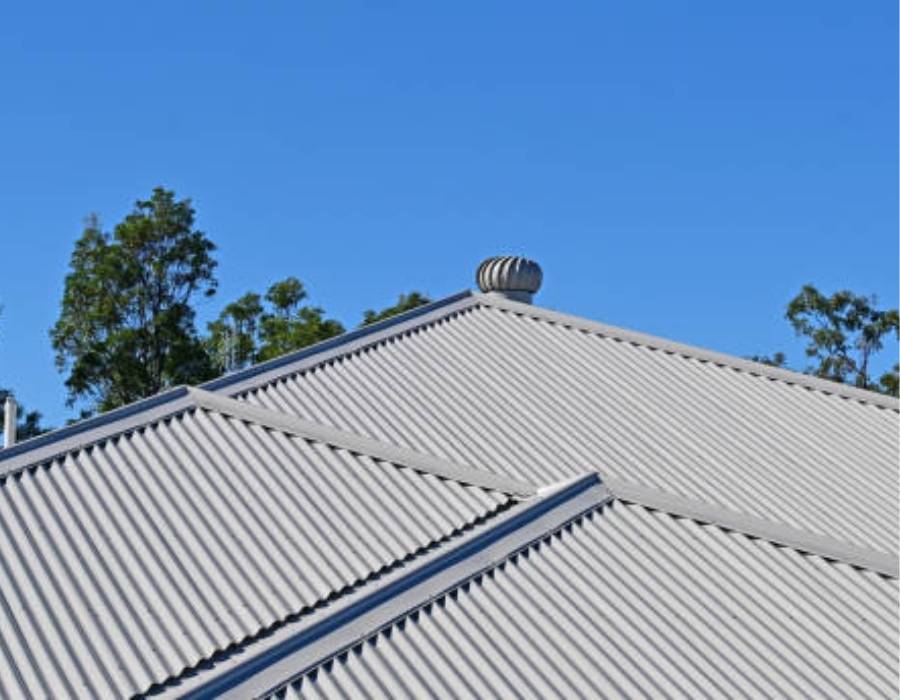Industrial Roofing Solutions in Frederick: Built for Heavy Use
Frederick, Maryland, has grown into a hub for manufacturing, warehousing, biotech, and light industrial businesses. With so many facilities supporting daily operations, protecting them with the right roofing system is critical. Unlike residential roofs, industrial buildings require specialized materials that can withstand chemicals, heavy foot traffic, high equipment loads, and the region’s seasonal weather extremes.
If you’re a business owner or facility manager searching for reliable industrial roofing Frederick MD, it’s important to understand your options, their strengths, and how they perform in both local conditions and high-demand environments. This guide breaks down the most common materials, their durability, and how to choose the right solution for your property.
Unique Challenges for Industrial Roofing in Frederick
Industrial roofing in Frederick faces challenges beyond what most commercial properties encounter. Frequent foot traffic from maintenance crews and contractors means the system must be durable enough to withstand constant wear without compromising performance. At the same time, exposure to chemicals, solvents, or industrial byproducts demands roofing materials that can resist corrosion and breakdown over time.
Adding to the complexity, heavy equipment loads—like HVAC units, exhaust fans, and solar panels—put significant strain on the structure. Combined with Frederick’s climate of humid summers, heavy rains, snow, and freeze-thaw cycles, these stressors shorten a roof’s lifespan if the wrong material is chosen. That’s why industrial facilities need roofing designed for resilience, longevity, and low maintenance under these demanding conditions.
Heavy-Duty Industrial Roofing Materials
Here are the top-performing options for industrial roofing Frederick MD businesses can rely on:
1. TPO (Thermoplastic Olefin) Roofing
TPO is a lightweight yet durable option that offers excellent UV resistance and strong protection against heat, making it ideal for Maryland’s hot summers. Its reflective white surface helps reduce cooling costs, while its ability to resist oils and mild chemicals makes it a practical choice for warehouses, logistics hubs, and distribution centers seeking both durability and energy efficiency.
2. PVC (Polyvinyl Chloride) Roofing
PVC stands out for its unmatched chemical resistance, making it one of the best solutions for industrial facilities where exposure to grease, oils, or harsh pollutants is common. Welded seams create a watertight surface that holds up well in Frederick’s humid, storm-prone climate, making it especially reliable for biotech labs, food-processing plants, and industrial sites with demanding environments.
3. EPDM (Ethylene Propylene Diene Monomer) Roofing
EPDM, often referred to as rubber roofing, is valued for its long lifespan of 20–30 years when properly maintained. It performs exceptionally well in cold weather, handling freeze-thaw cycles without cracking, while offering one of the most budget-friendly price points compared to PVC or TPO. This makes it a dependable choice for manufacturing plants and industrial facilities prioritizing affordability and durability.
4. Modified Bitumen Roofing
Modified bitumen is reinforced with fiberglass or polyester for added toughness, giving it strong impact resistance and the flexibility to handle Maryland’s shifting temperatures. With multiple installation methods—torch-applied, cold-applied, or self-adhered—it’s a versatile solution that works well for smaller industrial buildings or retrofit projects where budget and ease of application are key considerations.
5. Metal Roofing Systems
Metal roofing offers unmatched strength and longevity, often lasting 40–60 years with minimal maintenance, making it one of the longest-lasting industrial roofing systems available. Its impact resistance helps it withstand hail and severe storms, while its structural integrity supports heavy equipment loads. For Frederick facilities that want low upkeep and maximum return on investment, metal is often the premier choice.
How Maryland’s Climate Impacts Industrial Roofs
When selecting Frederick commercial roofing, it’s not just about the material—it’s also about how it performs against the weather.
- Summer Humidity: Creates conditions for mold, mildew, and premature membrane breakdown. PVC and TPO resist this best.
- Storms and High Winds: Require roofing with reinforced seams and strong wind ratings—metal and PVC excel here.
- Snow and Ice: Freeze-thaw cycles can stress membranes and cause cracks. EPDM and modified bitumen are flexible enough to handle expansion.
- UV Exposure: Long summer days can weaken cheaper roofing. Energy-efficient TPO is especially strong against UV rays.
Maintenance Requirements for Industrial Roofs
No matter what material you choose, all industrial roofing Frederick MD systems require maintenance to maximize lifespan. Facility managers should:
- Schedule biannual inspections (spring and fall).
- Check for chemical spills or residue that may damage membranes.
- Ensure gutters and drains are clear to prevent ponding water.
- Inspect seams, flashing, and penetrations around HVAC units.
- Keep foot traffic pathways marked or reinforced with walkway pads.
Regular upkeep ensures small issues don’t turn into costly downtime.
Balancing Cost vs. Performance
When comparing materials for Frederick commercial roofing, cost is always a consideration. While EPDM and modified bitumen are affordable upfront, they may require more repairs over time. On the other hand, PVC, TPO, and metal roofing come with higher installation costs but often pay for themselves in energy savings, lower maintenance, and longer lifespan.
Securing Frederick’s Industrial Roofs for the Long Haul

Industrial facilities in Frederick face unique challenges, from heavy equipment loads to exposure to chemicals and Maryland’s unpredictable weather. Choosing the right Frederick commercial roofing system is one of the most important investments you can make for your business.
Whether you opt for PVC’s chemical resistance, TPO’s energy efficiency, EPDM’s longevity, modified bitumen’s flexibility, or metal roofing’s unmatched lifespan, the key is selecting a system designed for heavy use. Combined with regular maintenance and guidance from a knowledgeable contractor, your industrial roof will provide protection, efficiency, and peace of mind for decades.
Protect your business. Protect your investment. Choose the industrial roofing solution built to last.

